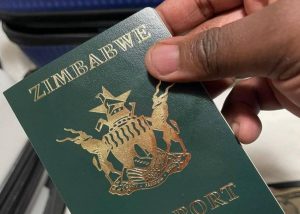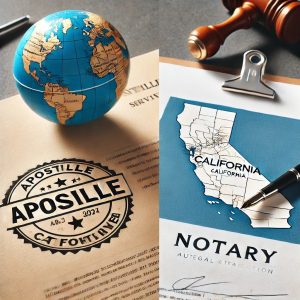If you’re planning to use your South African documents in the Netherlands, for business or personal reasons, the Dutch authorities may require your documents to be legalised with an Apostille before they can accept them. Therefore, South African citizens and companies need to be aware of the South African document legalisation instructions for the Netherlands. However, navigating the legalisation process can be overwhelming, especially if you’re not familiar with the requirements and procedures involved. In this comprehensive guide titled “South African Document Legalisation Instructions for the Netherlands,” we will provide you with all the information you need to understand how to get your South African documents legalized for use in the Netherlands.
These instructions provide clear guidelines for the authentication and legalisation of South African documents to ensure that they are recognised and accepted by Dutch authorities and organisations. So whether you’re planning to work in the Netherlands, apply for citizenship or travel for tourism purposes, read on to learn about the South African document legalisation instructions for the Netherlands.
Overview of South African document legalisation instructions for the Netherlands

The significance of South African document legalisation instructions for Netherlands goes beyond mere administrative procedures, it is a legal requirement. When using a document from one country in another, proof of the official’s signature and seal authenticity is often needed. The Hague Convention of 5 October 1961 Abolishing the Requirement of Legalisation for Foreign Public Documents, or the Apostille Convention, has greatly simplified the process through a certificate called an Apostille, which eliminates the need for embassy or consular legalisation. More than 120 countries are now parties to the Convention, including South Africa and the Netherlands.
Step 1: Check whether your documents can be legalised

You can get documents legalised if they’ve been issued by :
- Home affairs: certificates such as a birth, marriage or death certificate, Letters of no impediment, Certificate of naturalisation or renunciation
- SAPS (South African Police Services): Police clearance certificates and certificates confirming expungement of criminal records
- Court: document signed and sealed by the court registrar or a judge such as a divorce decree
- Officially signed documents from government departments, like tax registration confirmation letters or CIPC-issued company certificates, are included.
- HPCSA registered doctor, such as a medical certificate signed by a doctor
South African ‘public officials,’ including notaries, can certify a range of documents, allowing them to be legalized and used broadly. These documents include a power of attorney, a contract, or a qualification certificate, as well as copies of documents like a passport or a driver’s license.
This list does not cover all the documents you can get legalized.
Step 2: Make sure your personal documents are recent and valid

Applicants should verify document validity because the Netherlands rejects and refuses expired documents and certificates submitted for legalization.
Recent personal documents are vital for legalization, offering the latest and most trustworthy information, crucial for the process’s validity. These documents offer the latest proof of identity, status, and qualifications, minimizing the risk of inconsistencies or inaccuracies. In most cases, you must issue certain documents recently (within 6 months) because they are subject to an expiry date. Examples of such documents include passports, visas, police clearance certificates (PPC) and driving licences. To ensure their continued legal status, you must renew these documents regularly, as they have a limited period of validity.
However, it’s worth noting that certain Home Affairs documents, such as birth certificates, identity documents, marriage certificates and divorce decrees, do not usually have an expiry date. These documents are permanent and have an indefinite validity. Similarly, academic certificates such as degrees, diplomas, matriculation certificates and higher education certificates do not have an expiry date. They simply serve as permanent proof that you have met the required educational criteria.
Step 3: Check apostille requirements and obtain the right apostille
There are 2 types of apostille in South Africa.
- DIRCO Apostille – Documents issued by a government department such as the Department of Home Affairs (DHA), South African Police Services (SAPS) etc… must be submitted to the Legalisation Section at the Department of International Relations and Cooperation (DIRCO) for apostille in Pretoria.
- High Court Apostille – You must notarize documents like copies of travel documents (passports), driving licenses, or legal documents such as affidavits, powers of attorney, employment contracts, and/or translations. If required, a Sworn Translator should handle the translation. Afterwards, you should submit them to the Registrar of any High Court in South Africa for Apostille.
It should be noted that although the two apostilles are equivalent and have the same legal value, the Dutch embassies in Cape Town and Pretoria prefer the DIRCO apostilles to the High Court apostilles. It is therefore important to obtain the apostille from the correct institution. If you have any uncertainties or if your document is eligible only for a High Court Apostille, it’s advisable to contact the Netherlands embassy at the destination to confirm their acceptance of a High Court Apostille.
Bear in mind that the apostille, an A4 certificate, guarantees your document’s acceptance in the Netherlands when affixed to it. If you remove it after affixing, it will lose its validity. The Apostille certifies solely the origin of the public document to which it is affixed. It authenticates the signature or seal on the public document, specifying the authority’s capacity in signing or sealing the document. It does not however certify the content of the public document(s) to which it relates. Apostilles are not grants of authority and do not give any additional weight to the content of underlying documents. Apostilles are solely for international use; they are not permitted for document recognition within the issuing country.
Global Apostille Translation and Apostille Services!
Global Apostille’s skilled translators play an essential role in ensuring the accurate and precise translation of your documents, preserving their original content throughout the translation process. We are your one-stop shop for apostilling services. We provide apostilles from the Department of International Relations and Cooperation (DIRCO) in Pretoria as well as from the High Courts. Our DIRCO Express Apostille service provides you with a guaranteed expedited Apostille within 5 days, which is faster than the standard DIRCO option which usually takes 4 to 5 weeks. We ensure that your important documents are properly certified in the shortest possible time. For more information on our services please contact us.
Tel: 012 348 3134| Mobile: 081 347 6060 | Email: info@apostillelegalisation.co.za









